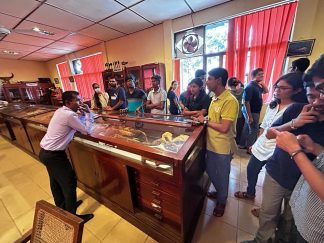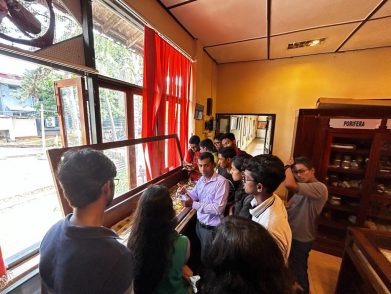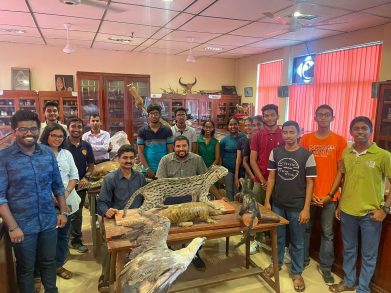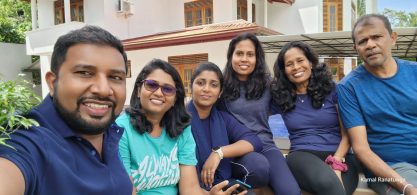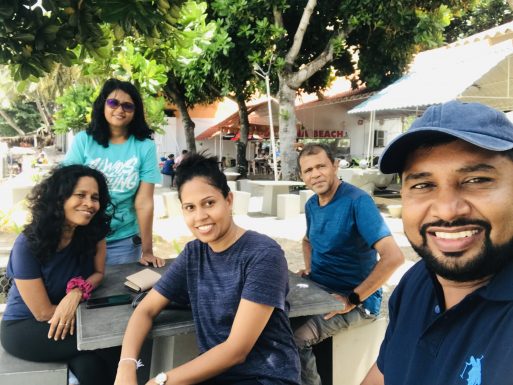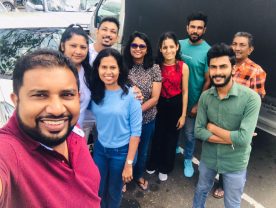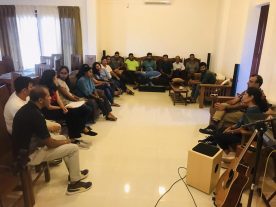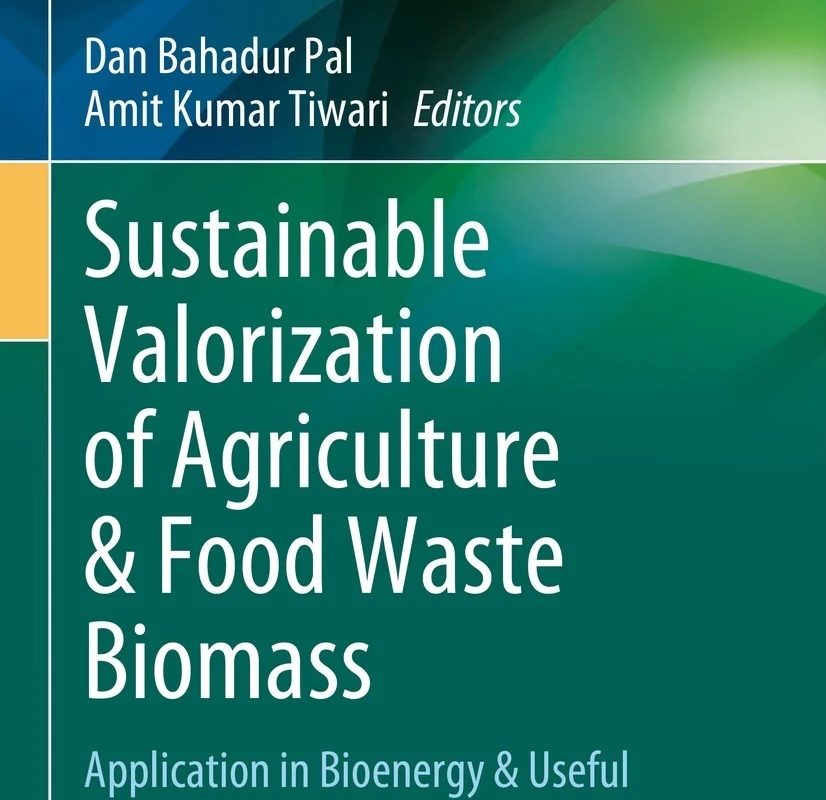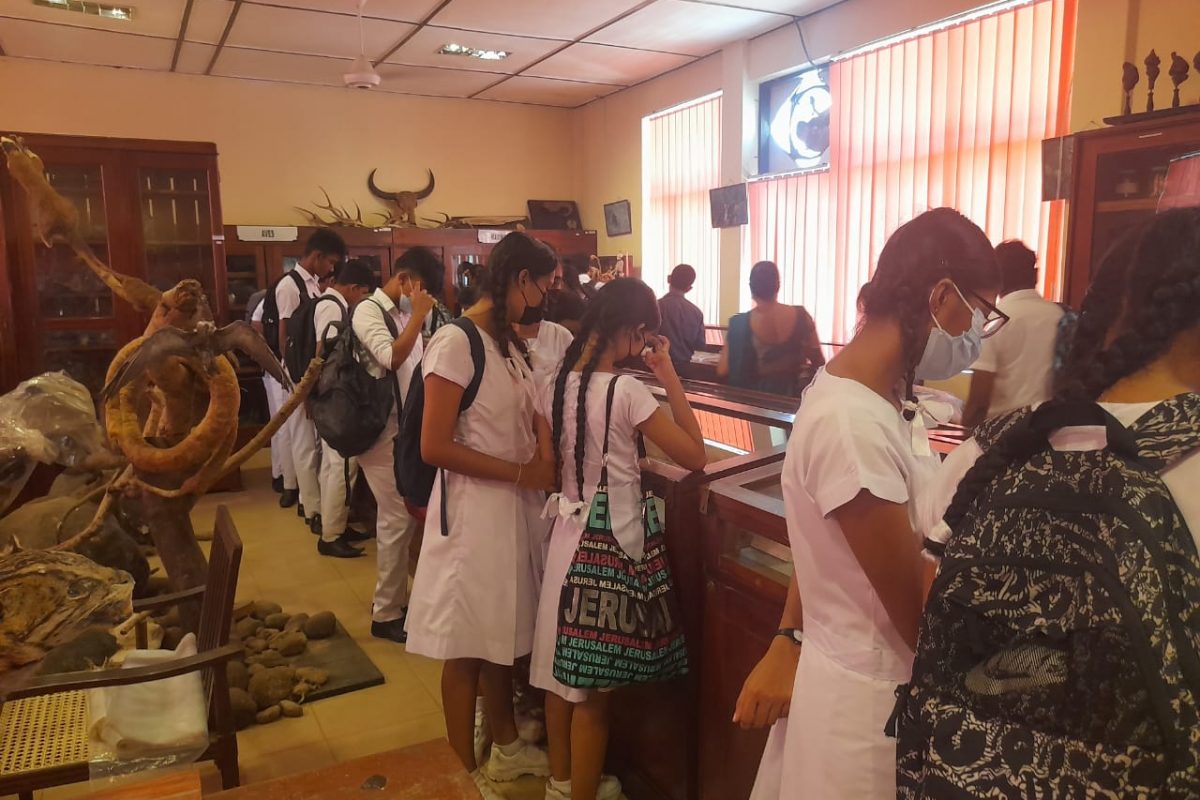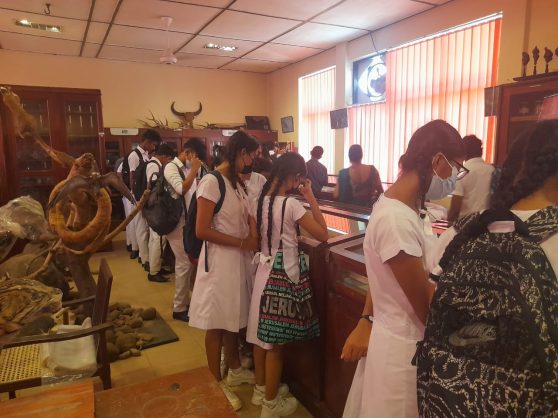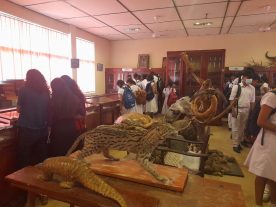Young Biologists Association’s visit to the museum was nothing short of a remarkable journey into the world of science and nature. Through engaging displays, hands-on activities, and passionate interactions, the young biologists gained a deeper appreciation for the intricate tapestry of life that surrounds us. This visit was a reminder that curiosity and exploration are the keys to unlocking the mysteries of our natural world, and the future of biology is indeed in capable, enthusiastic hands.
Zoology Progress Review Gathering was organized with the primary aim of reflecting on the department’s accomplishments, identifying areas for improvement, and aligning our goals for the future. It provided a valuable platform for team members to come together, exchange ideas, and celebrate our collective efforts.
The event also served as an occasion to recognize the hard work and dedication of our team members. Acknowledging individual and collective achievements played a pivotal role in boosting morale and motivating everyone to continue striving for excellence.
The atmosphere at the gathering was filled with energy and enthusiasm, fueled by the exchange of innovative ideas. These fresh perspectives not only sparked creativity but also provided a blueprint for future projects and initiatives. Together, we envisioned a brighter and more prosperous future for our department.
A. K. C. Wijerathna, K. P. P. Udayagee, F. S. Idroos & Pathmalal M. Manage
Book chapter published in Sustainable Valorization of Agriculture & Food Waste Biomass
There has been a significant increase in global waste generation owing to rapid urbanization and industrialization. Anthropogenic activities associated with exploiting natural resources pose severe threats to the long-term resilience of ecosystems. The buildup of waste biomass in ecosystems causes various adverse environmental conditions, such as greenhouse gas emissions, global warming, bioaccumulation and biomagnification of hazardous chemicals, surface and groundwater pollution, and acid rains suppress and lessen biological diversity. According to the World Bank predictions, 3.4 billion tons of municipal solid waste will have been generated by 2050. Thus, effective waste biomass management through valorization is critical in circular bio-economy and meeting environmental feasibility. Due to its abundance and renewability, lignocellulosic waste biomass can be a beneficial substrate to produce many high-value goods such as biofuels, biofertilizers, composts, biochar, pharmaceuticals, bioplastics, and food additives. This chapter summarizes the potential of hydrothermal conversion processes, including hydrothermal carbonization, hydrothermal liquefaction, and hydrothermal gasification, in producing a range of value-added products from solid waste substances. Moreover, the future trends of biological conversions that use microbial bioconversion generate a number of eco-friendly valorized products like biopesticides, biohydrogen, organic acids, antibiotics, enzymes, food colors, amino acids, and single-cell proteins were discussed. Further, this chapter highlights the multidisciplinary approaches for waste biomass valorization combined with advanced bio-nanotechnology, enzymatic sequent biomass hydrolysis treatments that are becoming popular and research gaps to overcome the challenges of waste biomass valorization by enhancing the process efficiency.
Zoology museum held a one-day workshop on 20th July for Advanced Level Biology students from President’s college Sri Jayewardenepura Kotte (Boys) and President’s college Nawala(Girls). The workshop was coordinated and conducted by Mr. Ravindra Pethiyagoda, with the assistance of graduate teaching staff. As part of the workshop, the students had the opportunity to visit the Natural History Museum at the Department and engage in several practical modules focused on Animal Diversity, Anatomy, Histology and Molecular biology. It was an enriching experience for the students as they delved into these fascinating subjects.



